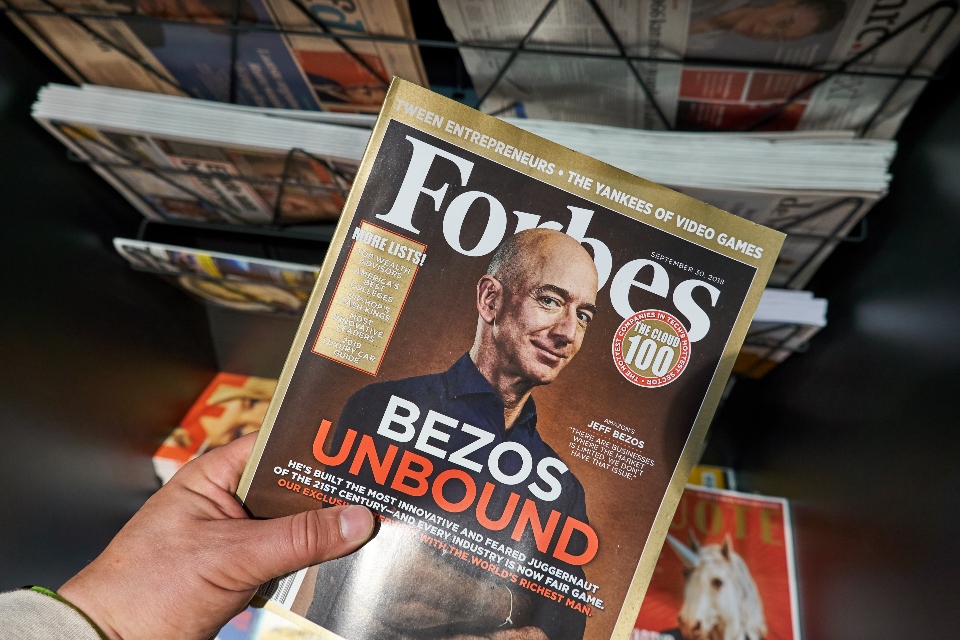Who Was the Richest Person in History?
 According to the latest Forbes Rich List, the richest person in the world is Jeff Bezos, founder and, until recently, CEO of Amazon. Forbes estimates Jeff Bezos’ wealth at $177bn (£133bn), which puts him ahead of those other well-known billionaires, Elon Musk, Bill Gates and Mark Zuckerberg.
According to the latest Forbes Rich List, the richest person in the world is Jeff Bezos, founder and, until recently, CEO of Amazon. Forbes estimates Jeff Bezos’ wealth at $177bn (£133bn), which puts him ahead of those other well-known billionaires, Elon Musk, Bill Gates and Mark Zuckerberg.
These days it is easy to keep score of the billionaires’ wealth – and the title of ‘Richest Person in the World’ does occasionally change hands as the share prices of Amazon, Tesla, Microsoft and Facebook fluctuate.
But how do today’s billionaires compare to the richest people in history? We have all heard the saying ‘as rich as Croesus,’ the king of Lydia from 585 to 546 BC: was he the richest person who ever lived? Or do we need to look further afield?
It is, of course, difficult to compare. Do you put absolute rulers in your ‘all-time rich list’? Joseph Stalin, for example, had complete control of the Soviet Union, a country with (at the time) almost 10% of the world’s GDP. What about Genghis Khan who, as absolute ruler of the Mongol Empire, ‘owned’ land stretching from Mongolia and China through Asia and almost into Europe?
One name often mentioned in this vein – and frequently awarded the ‘richest of all time’ title is Mansa Mesu, the king of Timbuktu, who lived from 1280 to 1337 and whose West African empire was almost certainly the biggest producer of gold at a time when gold was in especially high demand.
His pilgrimage to Mecca apparently caused a currency crisis in Egypt, with tales of dozens of camels each carrying hundreds of pounds of gold. Contemporary commentators struggled to describe Mansa Mesu’s immense wealth, with one picture apparently showing him on a golden throne, holding a sceptre of gold in one hand, a golden cup in the other and wearing a golden crown.
If we are looking for more recent wealth that we can measure in today’s terms, then perhaps the accolade should go to Andrew Carnegie (1835 to 1919). The Scottish immigrant sold his company, US Steel, to J P Morgan for $480m in 1901. That sum equated to 2.1% of US GDP at the time, meaning that in today’s terms Carnegie would be worth between $370bn to $400bn (£277bn to £300bn). That figure puts him ahead of John D Rockefeller, whose Standard Oil company controlled 90% of US oil production by 1880 and gives Carnegie a fortune worth more than twice that of Jeff Bezos.
It will be interesting to revisit the ‘all-time rich list’ in 10 years’ time. Some analysts are suggesting that Jeff Bezos could become the world’s first trillionaire. There will certainly be names on the list that none of us have heard of today. And no-one would be surprised to see Chinese billionaires far higher on the list than they currently are. For now, though, today’s billionaires have some way to go to catch up with Andrew Carnegie, and Mansa Mesu’s camel train…
If you would like to talk over your own financial position, feel free to get in touch and explore the options that are available to you. You can call me on 01789 263888 or email michael.harvey@charterswealth.co.uk.

